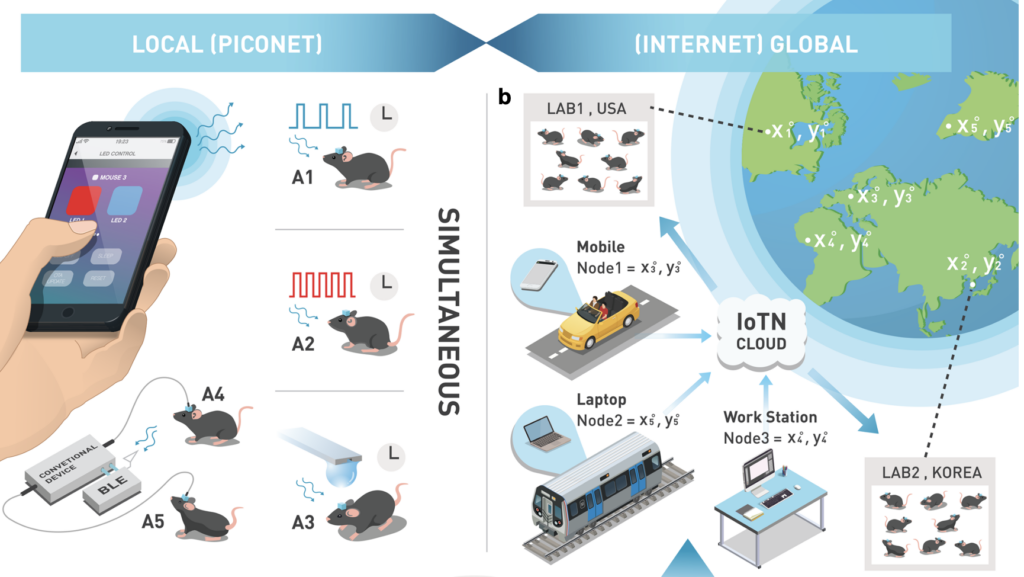In a recent study published in Nature Biomedical Engineering on November 25, 2021, Jordan McCall, PhD, MPH, alongside Jae-Woong Jeong, PhD, at Korea Advanced Institute of Science and Technology (KAIST), and Sangtae Ha, PhD, at the University of Colorado, Boulder, have developed a method to remotely control brain circuits in multiple animals simultaneously and independently.
By creating a wireless network utilizing implantable devices and equipment integrated with Internet of Things (IoT) technology, scientists have enabled leading-edge, large-scale neuroscience experiments that can study the brains of animals from almost anywhere outside of the lab. The low-cost setup of this system means it can be easily adopted by other labs due to its minimalistic hardware, ease of use, and customizability. Scientists will be able to implement this technology in their existing laboratories with minimal budget concerns to achieve remote access and automate experiments where having a human present could affect the outcomes of the study. Kyle Parker, PhD, one of the lead authors on the study said, “This experimental automation can potentially help us to reduce the number of animals used in biomedical research by reducing variability introduced by various experimenters. This is especially important given our moral imperative to seek research designs that enable this reduction.”
“This technology has the potential to change how basic neuroscience studies are performed,” said McCall. “One of the biggest limitations when trying to understand how the mammalian brain works is that we have to study these functions in unnatural conditions. This technology brings us one step closer to performing important studies without direct human interaction with the study subjects.”
The researchers believe this newly developed technology will speed up brain research and various neuroscience studies to uncover basic brain function, as well as open new opportunities for many applications including brain research, pharmaceuticals, and telemedicine to treat diseases in the brain and other organs remotely. This remote automation technology may become even more valuable in the current COVID pandemic when many labs needed to shut down during the height of the pandemic. “This technology supports monitoring the environment inside of animal housing which might be useful to ensure animal welfare in future crises requiring social distancing,” McCall added.
Jordan McCall, PhD, MPH, is an assistant professor in the Department of Anesthesiology at Washington University School of Medicine in St. Louis, and an adjunct assistant professor in the Department of Pharmaceutical and Administrative Sciences at the University of Health Sciences & Pharmacy. Kyle Parker, PhD, is an Instructor in the Department of Anesthesiology at Washington University School of Medicine in St. Louis. The McCall Laboratory in the Center for Clinical Pharmacology focuses on understanding the neural mechanisms underlying the emotional distress associated with stress, chronic pain, and addiction, with a long-term goal of taking basic, circuit-level neuroscience research and actively applying findings to advance therapeutic options for patients.
